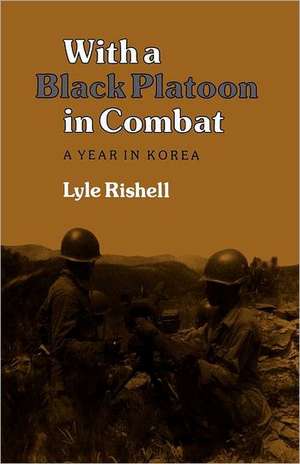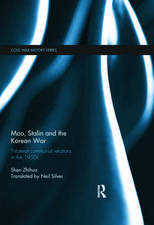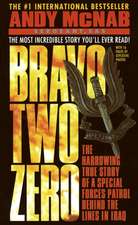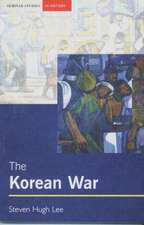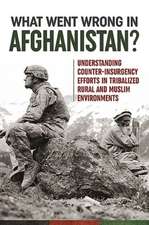With a Black Platoon in Combat: A Year in Korea: Texas A & M University Military History (Paperback), cartea 29
Autor Lyle Rishellen Limba Engleză Paperback – 30 iun 2012
Din seria Texas A & M University Military History (Paperback)
-
 Preț: 140.14 lei
Preț: 140.14 lei -
 Preț: 109.06 lei
Preț: 109.06 lei -
 Preț: 239.23 lei
Preț: 239.23 lei -
 Preț: 135.49 lei
Preț: 135.49 lei -
 Preț: 252.84 lei
Preț: 252.84 lei -
 Preț: 141.11 lei
Preț: 141.11 lei -
 Preț: 205.17 lei
Preț: 205.17 lei -
 Preț: 135.31 lei
Preț: 135.31 lei -
 Preț: 219.59 lei
Preț: 219.59 lei -
 Preț: 130.43 lei
Preț: 130.43 lei -
 Preț: 222.89 lei
Preț: 222.89 lei -
 Preț: 396.99 lei
Preț: 396.99 lei -
 Preț: 131.25 lei
Preț: 131.25 lei -
 Preț: 138.62 lei
Preț: 138.62 lei -
 Preț: 136.53 lei
Preț: 136.53 lei -
 Preț: 219.52 lei
Preț: 219.52 lei -
 Preț: 73.56 lei
Preț: 73.56 lei -
 Preț: 162.98 lei
Preț: 162.98 lei -
 Preț: 138.43 lei
Preț: 138.43 lei -
 Preț: 198.06 lei
Preț: 198.06 lei - 10%
 Preț: 134.42 lei
Preț: 134.42 lei - 12%
 Preț: 123.01 lei
Preț: 123.01 lei - 13%
 Preț: 143.83 lei
Preț: 143.83 lei
Preț: 122.61 lei
Nou
Puncte Express: 184
Preț estimativ în valută:
23.46€ • 24.41$ • 19.37£
23.46€ • 24.41$ • 19.37£
Carte disponibilă
Livrare economică 24 martie-07 aprilie
Preluare comenzi: 021 569.72.76
Specificații
ISBN-13: 9781603447409
ISBN-10: 1603447407
Pagini: 176
Dimensiuni: 140 x 216 x 11 mm
Greutate: 0.25 kg
Editura: Texas A&M University Press
Seria Texas A & M University Military History (Paperback)
ISBN-10: 1603447407
Pagini: 176
Dimensiuni: 140 x 216 x 11 mm
Greutate: 0.25 kg
Editura: Texas A&M University Press
Seria Texas A & M University Military History (Paperback)
Notă biografică
Textul de pe ultima copertă
The first year of the Korean conflict was a dark and humiliating period for many of the troops who fought there. Against a backdrop of U.S. political indecision and reduced military capability, American soldiers fought a dedicated and numerically strong enemy force that was determined to overrun South Korea. One of these units, the segregated 24th Infantry Regiment, was made up of black soldiers, commanded for the most part by white officers. Lyle Rishell, an infantry platoon leader, led a black platoon of Able Company in that regiment. This book tells the dramatic, often frustrating, sometimes heroic story of that platoon in that first, fateful year of war. From detailed notes he made at the time, and from his memories of those days, Rishell reconstructs the deployment and tactics of his unit, its day-to-day actions and survival. The story that unfolds is one of honor, fear, fighting spirit, fierce combat, and the cries of wounded men. The 24th Infantry Regiment has received bad press from many historians of the Korean conflict, who claim that the black soldiers and noncommissioned officers were undisciplined and even cowardly in battle. Rishell's moving account, based on his own experiences, describes his men as no better or worse than any other infantrymen in the first year in Korea. His troops fought well from July, 1950, to May, 1951, in nearly constant front-line action against the North Koreans and the Chinese Communists, despite a variety of significant fundamental obstacles, including the racial prejudice of much of their own army. It is a unique and compelling story of the relationship of a white officer and black soldiers before integration of the services and the civilrights legislation of the sixties. It is also an important corrective to a poorly understood aspect of one of America's most dismal conflicts.
